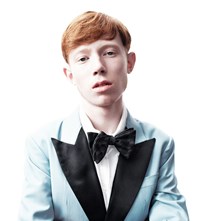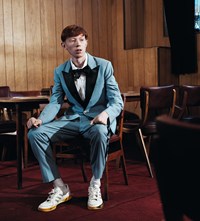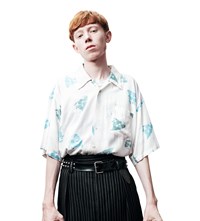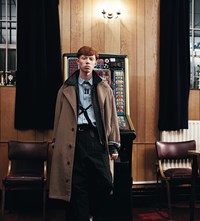Archy Marshall’s new album The Ooz shows that he is an artist like no other around, and that he’s a blessing on a generation of lost, lonely 20-somethings
- TextTom Connick
“A strip of red had torn through a complacent blue / to attach meaning, or thoughts of me and you,” mumbles Archy Marshall on A NEW PLACE 2 DROWN, a short film released alongside 2015’s album of the same name. Yet another facet of the man-otherwise-known-as-King Krule’s ever-evolving creativity, that line from A NEW PLACE 2 DROWN took on a new significance when his second album under the King Krule guise, The OOZ, was announced last month. It’s artwork – a strip of red through a deep blue sky – acted as a stitch between two of the Another Man cover star’s many mind-sets, harking back to that stopgap LP while soaring forward.
King Krule, DJ JD Sports, Edgar The Breathtaker, Beatmaker and more: Archy Marshall’s many guises house a kaleidoscopic creativity that puts him head and shoulders above most of his modern musical contemporaries. Each one has its own idiosyncrasies, showcasing a different side to an artist who refuses to settle – when he’s not in the studio or thrashing out demos at home, Marshall paints, draws, writes poetry and prowls the streets of his native South East London. Like the Half Man Half Shark he sings of on new album The OOZ, he never stops moving.
It’s The OOZ which is King Krule’s crown jewel. Released last week, King Krule’s second full-length is an ode to his subconscious – “your sweat, your nails, the sleep that comes out of your eyes, your dead skin,” he detailed in a recent NPR profile, “All of those creations that you have to refine.” The OOZ itself is delightfully unrefined. Like peering inside Marshall’s unsettled mind and scooping up a handful of his innumerable ideas, it skips and dances from punk to jazz, rockabilly to lounge, fizzing electronics to languid, post-rock soundscaping, often within the space of a single track. It’s his purest offering yet; an unedited snapshot of his captivating creativity.
A deep dive into an otherworldly imagination, Archy’s feet-on-the-ground sensibility nevertheless allows you sink into The OOZ without ever losing sight of the surface. The characters and situations he pens are grounded in reality – from the Dum Surfer he rips off in a local pub before going for a slash, to the gentrifying “bourgeoisie” destroying his beloved capital city home. An obsession with space and escape seems to haunt him throughout: “The space cadet waltz through the sky, lost in his search for distant forms of life” he sings on The Cadet Leaps. It harks back to debut album 6 Feet Beneath The Moon – itself a nod to a need to reach for something unattainable – while pushing the musical boundaries of that album out further, never content to stop evolving and tweaking King Krule’s once easily defined sound. No longer a baritone with a questionably-tuned guitar, he’s now a musical polymath, flinging ideas, sounds and genres around with all the freeform abandon of Jackson Pollock presented with a blank canvas.
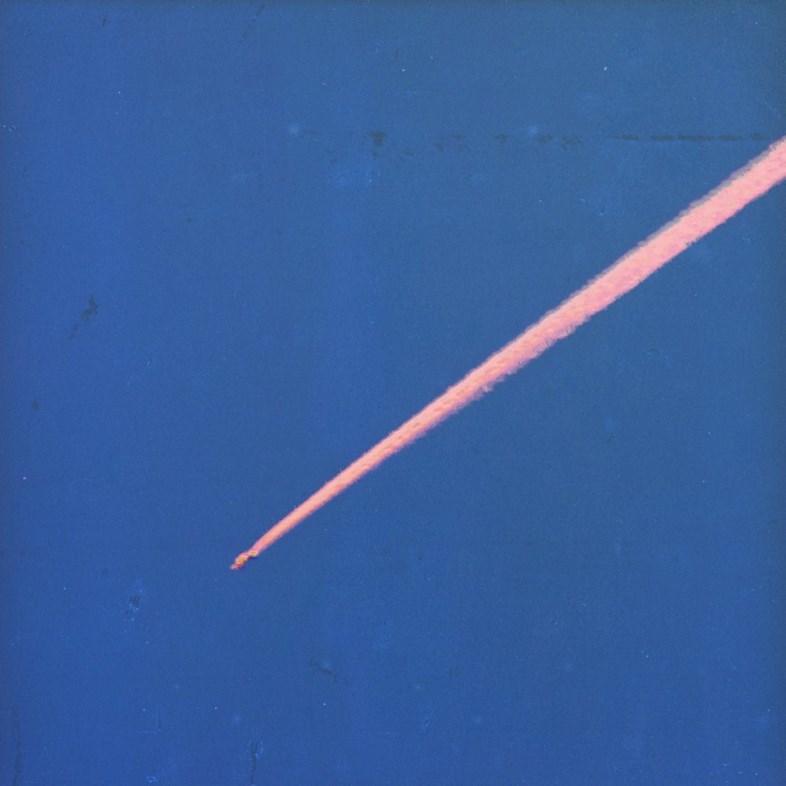
He combats mental health issues with the same fuggy-headed, weary realism, too. “Think we might be bi-polar,” he shrugs on Biscuit Town – an all-too-recognisable numbness; an uncomfortable familiarity with the cyclical nature of mental illness, which has become a calling card for this era. King Krule is no ‘spokesman for a generation’, though. He’s as self-absorbed as the rest of us, weaving these observations around a tale of romantic interest and selfish wants. He’s the young, artistic everyman, taking peeks at the world around him while wrapped up in his own day-to-day drudgery, stewing over half-thoughts and strands of inspiration.
Marshall has been candid about the struggle he faced following up 6 Feet Under The Moon. Writer’s block, failed relationships and an ever-fluctuating mental state nearly prompted him to pack it in altogether. That The OOZ exists at all is a near-miracle; the fact that it so perfectly packages those anxieties and troubles into something so stunning is astonishing. As The OOZ continues to seep outward, it looks set to define a decade of widespread personal discontent. A streak of red-haired creativity and an artist like no other around, King Krule is a blessing on a generation of lost, lonely 20-somethings.
